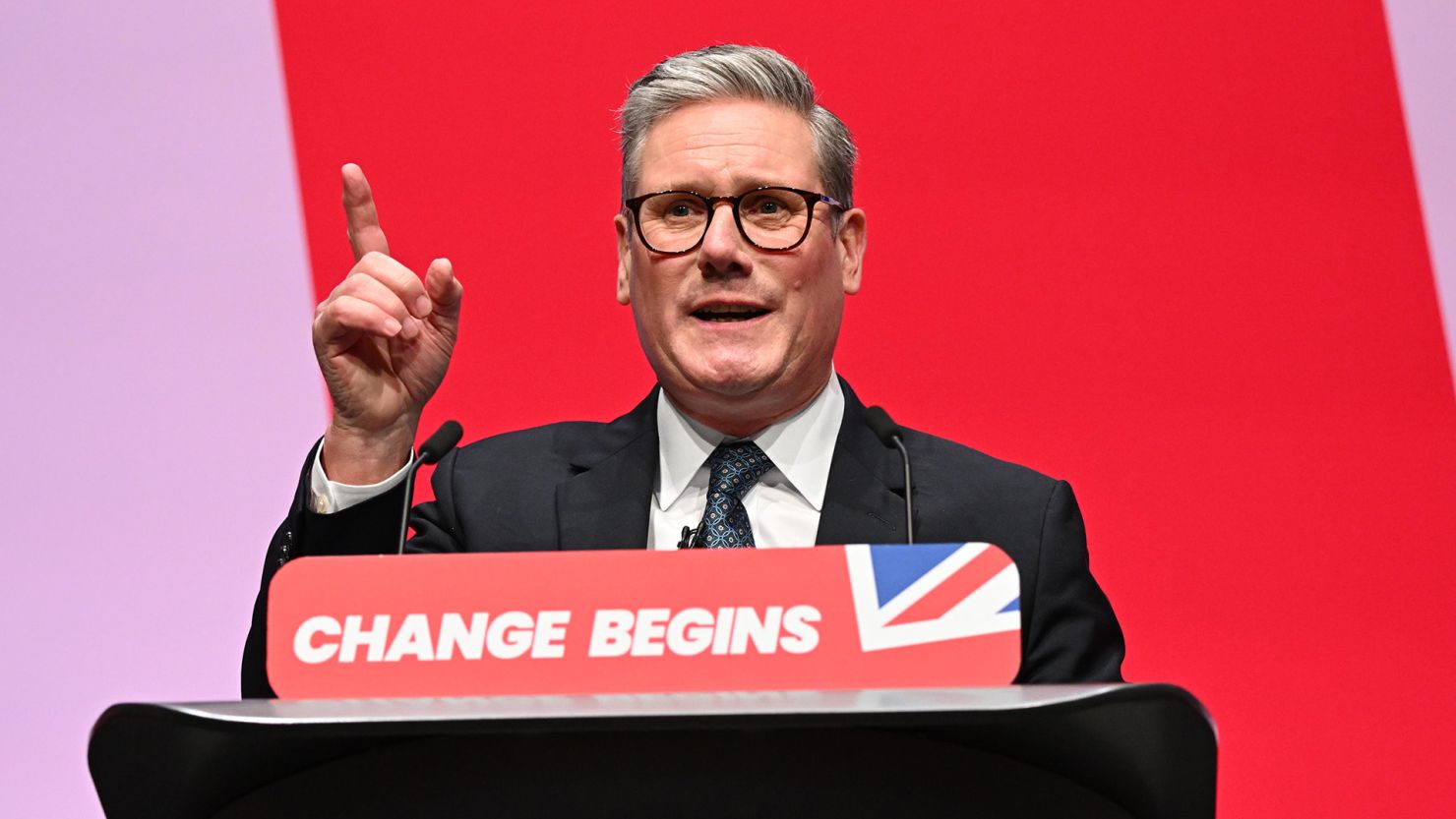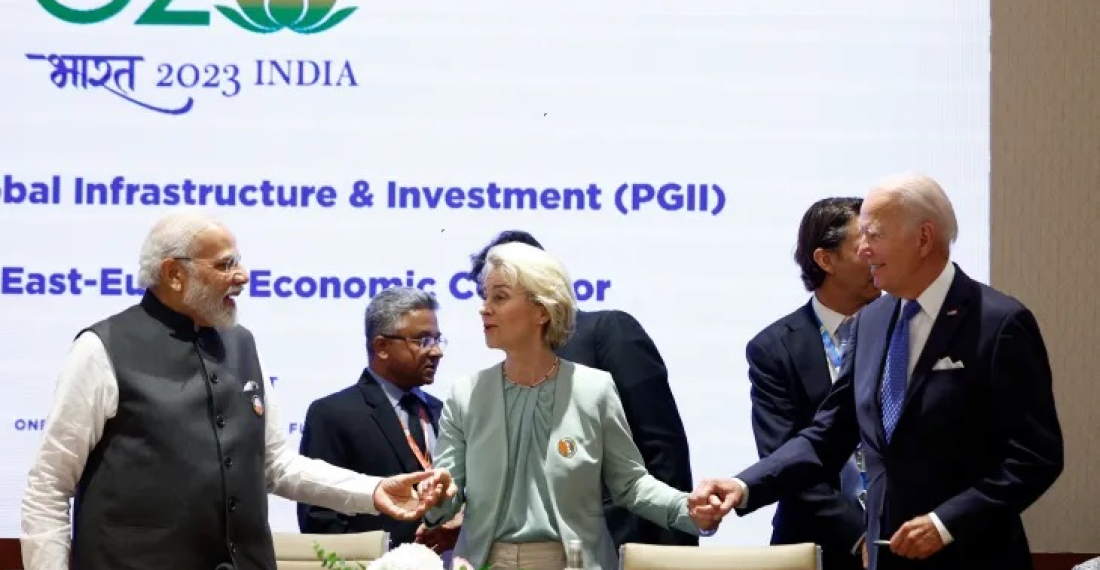United Kingdom country update – October 2024
| Despite winning a victory in the 4 July 2024 elections almost equivalent to that of Tony Blair in 1997, Keir Starmer’s new Labour government is already facing a decline in popularity. One in four Britons say they hoped Labour would make real progress, but are now disappointed (YouGov, 2024), with changes to the winter heating allowance being one of the main reasons for the disappointment.
While Starmer’s cabinet appointments, including Rachel Reeves, the first woman to hold the chancellorship, and David Lammy, foreign secretary, got off to a good start, his leadership is now being tested by internal controversies and considerable political constraints. It must tackle pressing issues such as public finances, housing, health services and education, while restoring relations with the European Union and strengthening international ties. With his support waning, Starmer’s success will depend on his ability to overcome these challenges and maintain momentum. Aware of growing concerns about his leadership, Mr Starmer began a reshuffle of his government team in Downing Street on his 94th day in office, leading to the departure of Sue Gray, chief of staff, after just three months in office. |
Keir Starmer arrived in Downing Street after a historic victory for the Labour Party in the general election.
- Keir Starmer’s Labour Party returned to power after 14 years in opposition, winning 412 seats, a staggering gain of 209 seats from the 2019 election. At the same time, the Conservative Party suffered a historic defeat, winning only 121 seats, the worst rout in its history. This first post-Brexit election marks a turning point not only for Labour’s landslide victory and the dramatic fall of the Conservatives, but also for the resurgence of the Scottish National Party and the transformation of the political landscape.
- The Liberal Democrats also gained ground, while, after eight attempts, the sovereigntists of Reform UK, led by Nigel Farage, finally broke through by winning 5 seats. Beyond partisan dynamics, this election also brought other upheavals: the new House of Commons will have a record 242 women MPs, but this achievement contrasts with one of the lowest turnout rates since 1885, at just 59.8 per cent.
A strong firm, but leadership immediately put to the test
- After the election, Prime Minister Keir Starmer unveiled his new cabinet: Rachel Reeves becomes the first woman to hold the position of Chancellor of the United Kingdom, Angela Rayner is appointed Deputy Prime Minister, Yvette Cooper becomes Home Secretary, and David Lammy takes over the reins of the Foreign Office. Wes Streeting was appointed Minister of Health. This cabinet is perceived as one of the best-prepared governments in recent decades.
- Three of the new secretaries of state have already headed ministries, while five others are former ministers. The majority of junior ministers are MPs with high-level ministerial or parliamentary experience, or have deep specialist expertise. In addition to these appointments, half a dozen London Labour MPs have been given influential roles as chairmen of key parliamentary committees, tasked with overseeing the government. This has prompted comments that the Starmer administration may usher in a more London-centric political era.
- Keir Starmer returned from the Labour Party’s annual conference, which took place from 25 to 29 September, clearly weakened, which led him to carry out a major cabinet reshuffle. In Liverpool, party members were increasingly concerned about his decision to cut winter heating allowances for 10 million pensioners, as well as the controversy over his acceptance of £32,000 worth of “free” suits and glasses, which he struggled to dispel.
- On his 94th day in office as prime minister, Mr Starmer made sweeping changes to the way Downing Street operates, starting with Sue Gray stepping down as chief of staff after just three months. Gray, who had faced internal criticism over her £170,000 salary and her authority deemed excessive, was offered a demotion to a part-time envoy role for the regions and nations of the United Kingdom.
- Starmer had previously created a dual leadership structure in his office, with Morgan McSweeney overseeing policy and Gray managing administration. While this structure has worked well in the opposition, it has so far failed in the government. Starmer therefore had no choice but to restructure his cabinet, appointing McSweeney as chief of staff and adding two assistants in charge of administrative tasks. While some see the reshuffle as proof that Starmer is tightening his grip on power, others see it as a politically unjust move, marginalising the party’s moderate left in favour of the Blairites.
“Making change happen”: Keir Starmer’s agenda under political and fiscal pressure
- Keir Starmer wants to prove that Labour is “making a difference” by prioritising issues where internal opposition is weak, which helps to maintain momentum. Among these initiatives, Starmer is seeking to lift the ban on onshore wind farms, a policy long championed by Conservative governments under pressure from MPs and voters. By tackling this issue, Starmer not only highlights a failure of the Conservatives, but also strengthens Labour’s environmental platform.
- However, significant challenges are emerging, particularly in terms of public finances. Chancellor Rachel Reeves has announced that the UK’s public finances are in their worst state since the Second World War. She said difficult choices will be inevitable, while emphasizing stimulating growth and increasing investment. Reforming the national planning policy framework and restoring housing targets are at the heart of Labour’s agenda to address the UK’s housing crisis. One of Starmer’s key promises is to build 1.5 million homes over the next five years. However, experts are expressing doubts about Labour’s ability to achieve this goal, pointing to the need for a radical transformation of housing policies to make it achievable.
- Attracting foreign investment is another major challenge. Over the past 30 years, the UK has often ranked among the bottom G7 countries in total investment, and the number of new foreign direct investment projects is near its lowest level in 12 years. Labour will have to redouble its efforts to attract foreign capital and improve the investment climate in the country.
- Improving public services, particularly in the health and education sectors, will test Labour’s resolve. Years of austerity have left these sectors underfunded, and although Labour has pledged to increase NHS spending by 1.1% a year, significant progress is likely to be long overdue. Keir Starmer’s government plans to reduce waiting lists by adding 40,000 more appointments per week, double the number of cancer screening scans, and recruit 8,500 new mental health professionals. However, the scale of these efforts may not be sufficient to fully satisfy public demand. In education, Labour is tackling persistent problems by promising an investment of £450 million to recruit 6,500 specialist teachers and improve school inspection and development across England.
- To strengthen investment in the public sector, the Labour Party has committed to spending nearly £5 billion a year by 2028-2029. This funding will support key initiatives such as Great British Energy, the Warm Homes Plan to insulate older homes, as well as the creation of a £7.3 billion National Wealth Fund to invest in the decarbonisation of heavy industry, with projects such as green steel and gigafactories. The British Business Bank’s reforms will also channel the UK’s vast institutional capital pools into low-carbon projects.
- In the field of defence, Mr Starmer has pledged to increase military spending to 2.5% of GDP. It plans to carry out a comprehensive review of the UK’s military priorities, with a clear timeline for achieving this goal, as NATO continues to push for the strengthening of European defence capabilities.
- Finally, Mr. Starmer will have to tackle the reform of the prison system, which is plagued by overcrowding. The early release of 10,000 prisoners by the previous Conservative government only partially solved this problem. Labour’s plan to reduce the minimum length of imprisonment from 50% to 40% could provoke negative reactions in public opinion. Nevertheless, the party is committed to building new prisons and improving coordination between prison leavers and probation services, in order to reduce recidivism and enhance public safety.
Navigating post-Brexit relations: between continuity and reconstruction
- Under Keir Starmer’s leadership, the UK’s foreign policy is expected to remain close to that of the previous Conservative government in many ways. Mr Starmer has already used two key moments in international politics – a NATO summit and a meeting of the European Political Community – to affirm his commitment as a pro-NATO Prime Minister, pro-Ukraine and in favour of better cooperation with the EU. These events allowed Labour to quickly demonstrate its support for Ukraine, while also giving Starmer the opportunity to meet with US President Joe Biden, underscoring the strength of transatlantic ties.
- Since the Brexit vote in 2016 and the UK’s departure from the single market in 2020, relations between the UK and the EU have remained tense. Although the new Labour government does not aim to rejoin the EU’s customs union, there is space and a willingness to improve relations with Brussels. Foreign Secretary David Lammy has spent his first week in office visiting EU capitals and meeting with EU leaders, with the aim of putting the UK back on a more positive trajectory with its main trading and diplomatic partner. With a more pro-EU stance than the Conservatives, this effort is likely to continue, with a view to repairing and strengthening cooperation between the UK and the EU in the years to come.
| Despite the challenges, Keir Starmer’s government is trying to regain momentum through a strategic shake-up and the success of the International Investment Summit, held in London on 14 October, which brought together leading global companies and investors. At the summit, Starmer put “stability” at the heart of his message, a principle that resonated with investors and resulted in an unprecedented £ 63 billion commitment, more than double the amount reached at the previous summit under Rishi Sunak.
However, the outcome will largely depend on the next budget, scheduled for October 30, which will reveal the government’s long-term strategy for taxes, spending and borrowing — essential elements to maintain investor confidence. With initiatives such as the “Invest 2035” consultation, which aims to target high-growth sectors, the Starmer government is positioning itself to attract international investment and redefine the UK’s industrial strategy. The success of this approach will depend on its ability to manage current economic and political pressures. |
Diederik de Vilder, Research and Analysis Director, ddevilder@reverdin.eu
Angelina Maupas, Junior Consultant, amaupas@reverdin.eu
Si vous souhaitez discuter plus avant de la situation politique et comprendre son impact sur le climat des affaires, le cadre macroéconomique, ainsi que sur la politique régionale et internationale, n’hésitez pas à nous contacter.
Nous aidons nos clients à naviguer la politique et la finance, du local au global.





